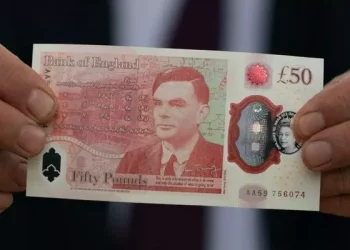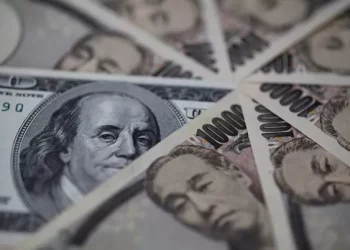As one of the most popular currencies in the world, the Euro (EUR) is widely accepted across many countries in Europe. When traveling to various European countries, visitors may wonder whether the Euro is accepted as a payment method or if they will need to exchange their money for local currencies. Sweden, being part of the European Union (EU), may spark such questions among travelers due to its close economic ties with other European nations. In this article, we will explore the situation regarding the use of Euro in Sweden and provide a detailed look at the local currency, payment methods, and exchange options in the country.
Understanding Sweden’s Currency Policy
Sweden is a member of the European Union, which is an important fact to note. While the country participates in many EU policies, it has chosen not to adopt the Euro as its official currency. Instead, Sweden continues to use its own currency, the Swedish Krona (SEK). This decision dates back to a referendum held in 2003, where Swedish voters chose to keep the Swedish Krona and not adopt the Euro.
At the time of the referendum, concerns over loss of monetary control and the stability of Sweden’s economy played a crucial role in the decision. While the Euro is used by many EU countries, Sweden’s economy has remained strong, and the Swedish government has maintained the position that retaining the Krona provides flexibility and control over its national economy.
Why Sweden Has Not Adopted the Euro
Sweden’s decision not to adopt the Euro has roots in both economic and political considerations. Despite being a part of the EU, Sweden is not part of the Eurozone. The Eurozone refers to the group of EU countries that have adopted the Euro as their official currency. Countries like Germany, France, Italy, and Spain are part of the Eurozone, and they conduct most of their transactions in Euro. However, Sweden’s refusal to join the Eurozone stems from several factors:
- Economic Stability: Sweden’s economy is considered one of the most stable in Europe. Having its own currency allows the central bank, Sveriges Riksbank, to set interest rates and control monetary policy in a way that suits the Swedish economy specifically.
- Flexibility: By keeping the Krona, Sweden has more flexibility during times of economic crises. For instance, in times of financial instability, having a separate currency allows Sweden to adjust its exchange rate and maintain control over its domestic economy.
- Public Opinion: The Swedish public has shown a preference for keeping the Krona, as evidenced by the referendum in 2003. Many Swedes feel that they benefit from maintaining control over their currency, which has performed well for the country over the years.
- EU Rules: While Sweden is part of the EU, the country opted out of joining the Eurozone due to a special exemption, which was granted after the 2003 referendum. This gives Sweden the ability to maintain its own currency without facing pressure to adopt the Euro.
The Swedish Krona (SEK)
Sweden’s official currency is the Swedish Krona, abbreviated as SEK. The Krona is divided into 100 öre, although coins of 1 öre are no longer in circulation. The Krona has been Sweden’s official currency since 1873, and it is widely used throughout the country for all types of transactions, both large and small.
The value of the Krona can fluctuate in relation to other currencies, particularly the Euro, US Dollar, and British Pound. The exchange rate between SEK and other currencies is influenced by factors such as Sweden’s economic performance, interest rates set by the central bank, and international trade conditions. Travelers visiting Sweden will need to either convert their own currency into SEK or use alternative payment methods to complete transactions.
Using Euro in Sweden
Now that we understand Sweden’s currency policy and the official use of the Swedish Krona, the question remains: can you use Euro in Sweden? While the Euro is not the official currency, there are still some cases where the Euro may be accepted.
- Tourist Areas: In major cities such as Stockholm, Gothenburg, and Malmö, as well as in popular tourist destinations, some businesses may accept Euro, especially those that cater to international visitors. This includes hotels, large retailers, and tourist attractions that expect to serve travelers from various countries. However, these businesses typically use their own exchange rates, which may not be favorable.
- Currency Conversion: Even in places that accept Euro, the exchange rate may not be ideal. Businesses may offer less favorable rates than what you would receive at a bank or currency exchange service. Additionally, any change you receive from such a transaction will most likely be given in Swedish Krona, not Euro.
- Banks and Exchange Services: While Euro is not commonly accepted in everyday transactions, some banks and currency exchange services in Sweden do offer the option to exchange Euro for Swedish Krona. You may be able to exchange your Euro banknotes at an exchange service, but again, you will receive Swedish Krona in return.
- Online Payments: For online transactions, you will find that many Swedish e-commerce platforms only accept payments in Swedish Krona. However, some international services such as booking websites and online retailers may allow payments in Euro or other currencies. In such cases, the payment provider will handle the conversion to Swedish Krona.
- Credit and Debit Cards: Credit and debit cards that are commonly used internationally, such as Visa, MasterCard, and American Express, are widely accepted in Sweden. If you have an international card that is linked to an account in Euro, the card issuer will convert the payment into Swedish Krona during the transaction. This is a common practice for tourists, as it avoids the need to carry large amounts of cash.
Currency Exchange in Sweden
Since the Euro is not the official currency in Sweden, visitors from the Eurozone or other parts of Europe will need to exchange their Euro for Swedish Krona if they plan to make payments in cash. Thankfully, there are numerous options available for currency exchange.
- Currency Exchange at Airports: Sweden’s major airports, such as Stockholm Arlanda Airport and Gothenburg Landvetter Airport, have currency exchange counters where travelers can convert their Euro into Swedish Krona. However, be aware that exchange rates at airports are often less favorable than those at banks or exchange offices in the city center.
- Banks: Banks in Sweden offer currency exchange services, although some may charge fees for the transaction. It’s generally recommended to check with local banks in advance to ensure they offer Euro-to-Krona exchanges. The exchange rates at banks tend to be better than those at airports, but it’s still a good idea to compare rates.
- Currency Exchange Services: Specialized currency exchange offices, such as Forex and X-change, are available in Swedish cities. These services typically offer competitive rates and may be a more cost-effective option than using a bank or airport exchange counter.
- ATMs: ATMs in Sweden accept international debit and credit cards, and many will allow you to withdraw Swedish Krona directly from your account. Some ATMs may charge fees for international withdrawals, so it’s important to check with your bank before traveling to understand any potential charges.
- Exchange Rates and Fees: When exchanging currencies, it’s essential to be mindful of the exchange rate and any associated fees. Exchange rates can fluctuate daily, and service providers may charge commissions or offer unfavorable rates for currency exchange. It’s a good idea to shop around to find the best deal.
Digital Payments in Sweden
Sweden is one of the leading countries in Europe when it comes to cashless payments. The use of credit cards, mobile payments, and digital wallets is widespread, and many businesses in Sweden no longer accept cash at all. This is especially true in larger cities and urban areas, where payment apps like Swish, Apple Pay, and Google Pay are used for everyday transactions.
If you have a credit or debit card linked to your bank account, you can easily make payments in Swedish Krona through mobile payment apps or at point-of-sale terminals in shops. Most businesses in Sweden accept major international credit and debit cards, and digital payments have become the norm for many Swedes.
Conclusion
To summarize, while you technically cannot use Euro as a primary form of payment in Sweden, the country’s flexible approach to foreign currencies means that it is sometimes accepted in certain tourist-oriented businesses. However, the most common and reliable way to make purchases in Sweden is through the Swedish Krona (SEK). Travelers will need to exchange their Euro for Krona at banks, currency exchange services, or ATMs to avoid unfavorable exchange rates. Additionally, the widespread use of credit and debit cards, along with mobile payment options, makes it easier for visitors to pay for goods and services without the need for physical cash.
Overall, understanding Sweden’s currency policy and the importance of the Swedish Krona will help ensure that you are well-prepared for your visit and can navigate the country’s payment systems with ease. Whether you are planning a short trip or an extended stay, knowing how to manage your finances and currency exchange options will make your experience in Sweden more seamless and enjoyable.
Related Topics:

























